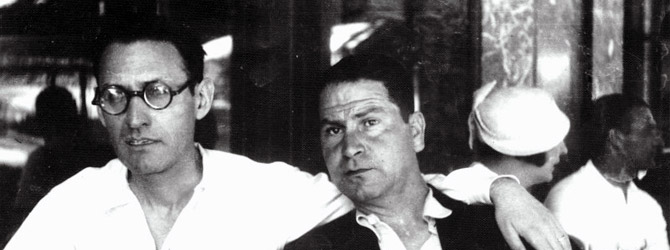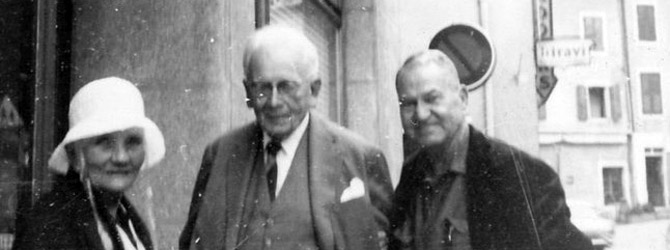Press

Critical Reception of the Work of Jules Lellouche
"In an era when a simple justice insists on according values to their real place, it
seems to me important to indicate that Lellouche, among the North African painters, is one
of those who does the most honor to Tunisia…
The entirety of Lellouche's art lies in refinement. What one must admire in Lellouche is the purety of his means. No doubt, his innate gifts serve him marvelously; his ultra-sensitive eye enables his discoveries. Learning from the grand masters, Lellouche has understood that the purity of means alone could loyally serve the simplicity of a pure heart: for Lellouche born in Monastir – he knows not what year – has kept a pure heart. This is his greatest force."

"Impression, whether one wants it or not this is the word that comes naturally to the lips when one wants to express her thoughts on the painting of Jules Lellouche… Lellouche being here the only painter knowing how to evoke from a nude study, a lively and beautiful work by the breadth of its execution, the style and emotion which he imparts to it."
"Lellouche is the leading painter from Colonial French North Africa in the tradition of Marquet, who painted these same subjects. He makes new again the range of bright colors of Tunis's light and makes Tunis an admirable Mediterranean port."
"This painter of light on water feels for ports a love similar to that of Albert Marquet's. And it is not surprising that Venice has held onto it, likewise with Paris and its bridges… But it is the light of Tunis among all that will have inspired this modern impressionist, and one remarks, among his most beautiful paintings, many visions of the port of Tunis, those of a small port, the green sailboat on the Goulette canal, the paintings of the Spanish fort."
"…his beautiful and delightful drawing and his very just and refined sense of values, in his figures as in the landscapes of Tunisia, Italy, or Paris. Art without pretense is familiar to the friends of the peculiar work of a painter who dares say his name… During all of his period of creative activity, Jules Lellouche was a heroic exception, a wiseman among the tumultuous struggles in Art, an original and sincere achiever in the same vein as Corot and Marquet."

"I wish for many to discover here the importance of this work that reveals itself discreetly only because it is profoundly intimate… The connoisseurs will be able to make sense of it, far from all "theory", whether it be figurative or abstract. They will have the same retinal joy looking at certain pieces of your work as those by Marquet, Vuillard, Jean Puy, or Lehmann, but they will also find, in others, some virtues close to Matisse or Dufy.
You are taking your place, which will be great, in a way of living and feeling that still guards contact with the great tradition of painters whom we have always loved."
"Lellouche indeed has in common with all these landscape and seascape painters, and with Turner, Monet, and Ziem as well, a sensibility that allows him to express himself with zest but via a confident brush and with the minimum of means, the fascination instilled in us by the sun and the sea.
A great genius, in the tradition of Corot, Boudin, Marquet, and Manet, but with a more vividly colored Mediterranean palette."
"Through his skies and his waters, Jules Lellouche's exhibition imparts to us a veritable cleansing of our soul."
"Lellouche is above all himself, that is, a delicate but structured painter, subtle but bold in his landscapes as well as his nudes. His work should, in my opinion, know an enormous and growing success, in other words the success he deserves."
"Few artists as truly talented as Lellouche have known how to stay as humble: without a furor in the discretion of his studio, he painted what he loved.
Lellouche owned his true personality, which is this rare gracefulness of sentiments that permeates each painting."
"Lellouche found his way very early: unconcerned by detail, he purposefully avoided being too precise; yet his efforts were borne by the color that he applied using little touches of paint, at the tip of his brush; and each time the finished canvas strikes one by its truth. This art has often been qualified as impressionist, and rightfully because it strives less to represent the real than to seize a fleeting impression. His works have been compared more than once to time-honored artists, but Lellouche imitates no one: he puts himself aside from the fashions that run through the painting of his time, he is pursuing his path by himself, looking only to paint what he sees as he feels it, and this constant sincerity is what touches us."